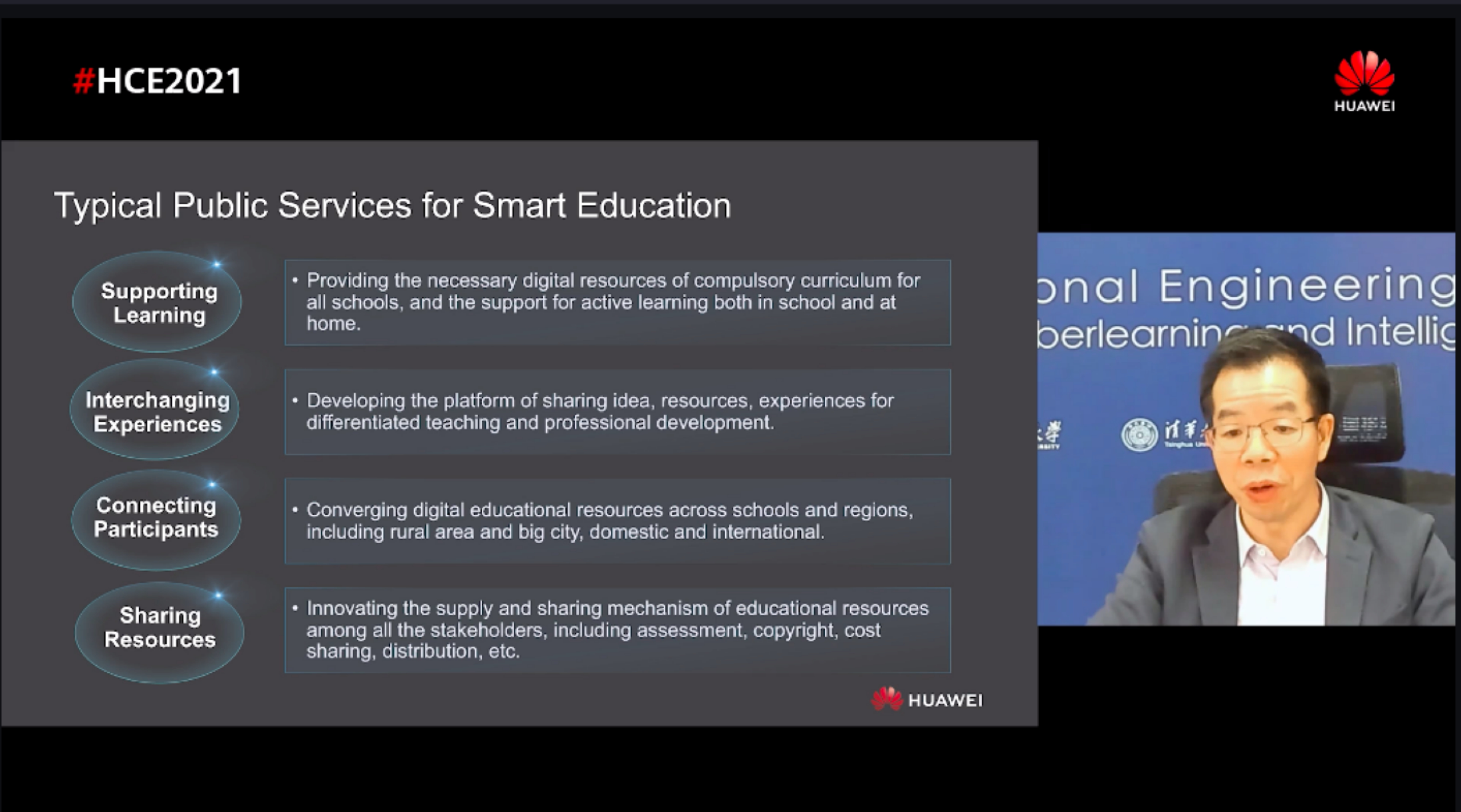Professor Huang Ronghuai was invited to attend the Sixth Huawei Eco-connect Europe 2021
date:2021-11-01 19:21author:adminsource:Smart Learning Instituteviews:
The meeting took place in multiple countries both online and offline during October 28th and 29th. The theme in this year was “Digital to Green, Transition to Value”, and Professor Huang presented a speech on 29th’s online sessions, “Education: Accelerate the Digital Journey of Education, New Value Together”.
The theme of Professor Huang’s speech was “Developing Smart Education with Public Services for Education Agenda 2030”. He mainly talked about three aspects: an international project on Smart Education that cooperated with international organizations, Rethinking and Redesigning Education on National Strategy with Smart Education, the policy made on new educational infrastructure construction in China, and three national educational public service systems in China.
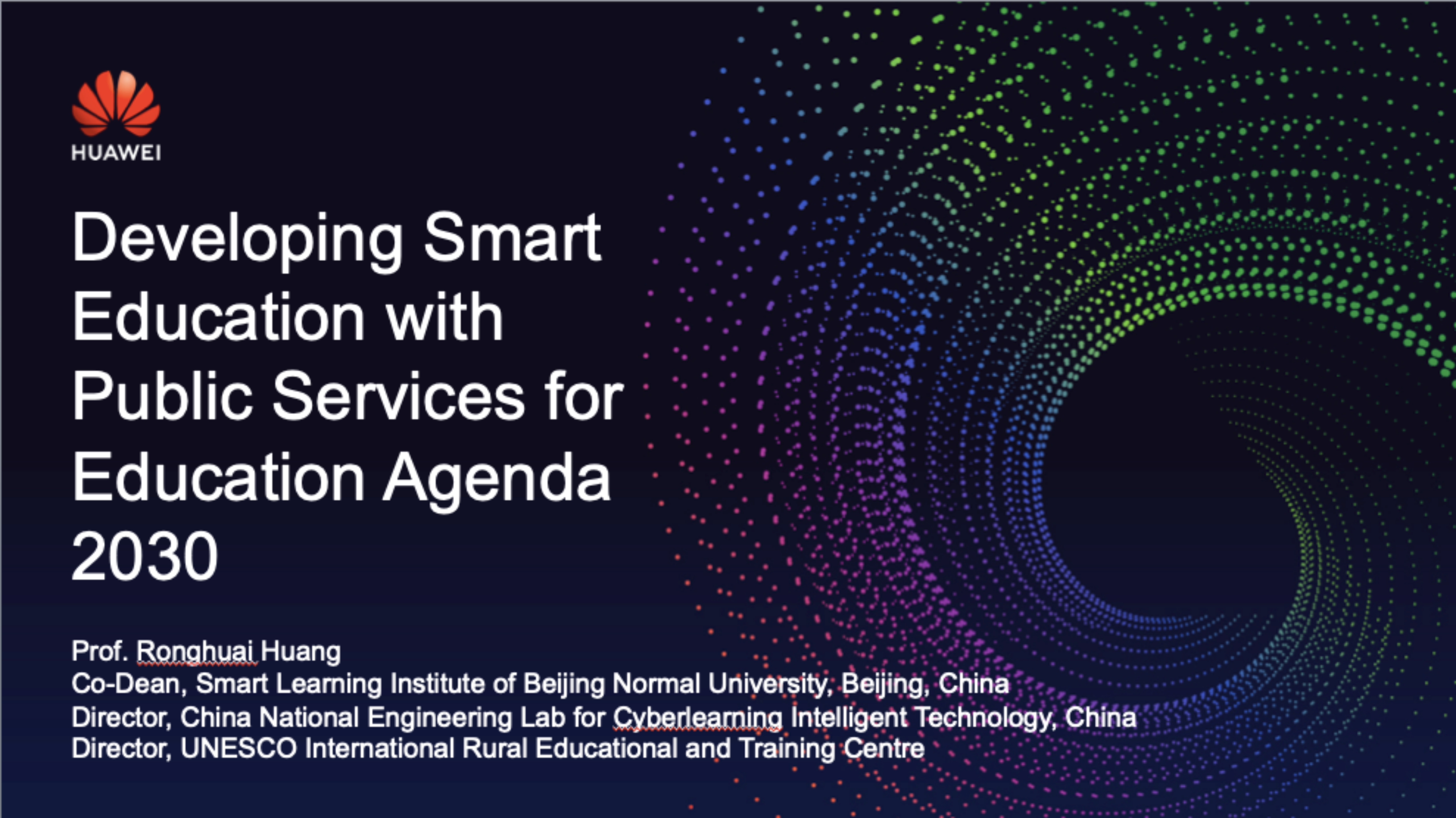
Professor Huang first introduced the Joint International Research Project on Smart Education with the audience. It is cooperated with four international organizations: UNESCO IITE (UNESCO Institute for Information Technologies in Education), COL (Commonwealth of Learning), ISTE (International Society for Technology in Education), HSE (National Research University- Higher School of Economics)和BNU (Beijing Normal University). The project, namely Rethinking and Redesigning National Smart Education Strategy, aims to fulfill the goal of SDG4 and the new demands on education since COVID-19. The three layers of smart education also aimed to match with the International Commission on the futures of Education: nine ideas for Public Action that UNESCO released last year.
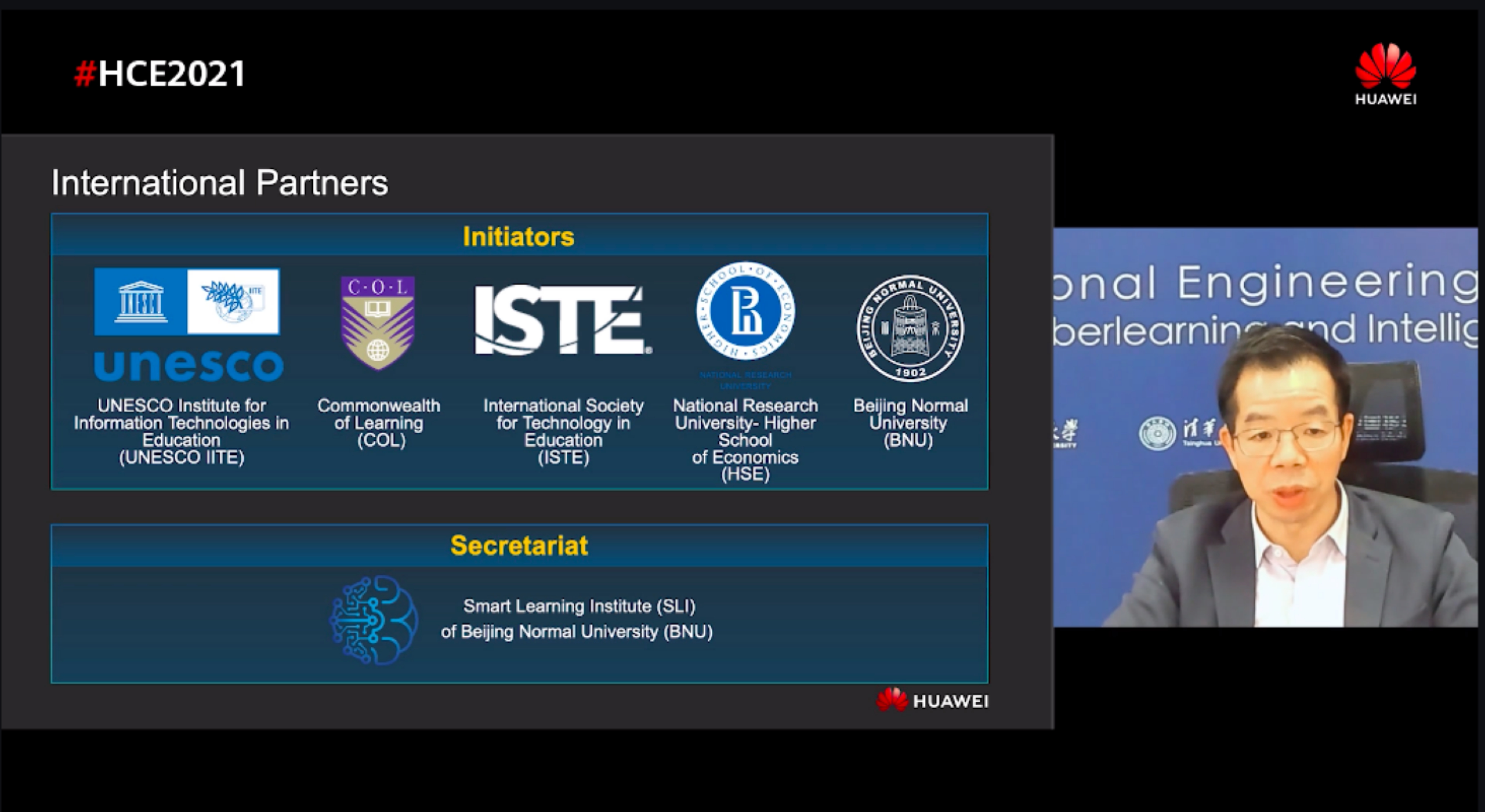
Professor Huang mentioned there are five core activities in this project, which are review of smart education policies all over the world, a technology framework of smart education and learning, constructing indicators of smart education at the country level to explore how to assess or monitor the situation, the national public services, and standards and techniques for the smart campus.
Then Professor Huang had briefly introduced some of the project outcomes. There are four components for the framework of National Smart Education, including transformative teaching and learning enabled by technology, the digital environment conducive to smart education, the forward-thinking governance and the policy initiatives, and the overreaching consideration across the framework.
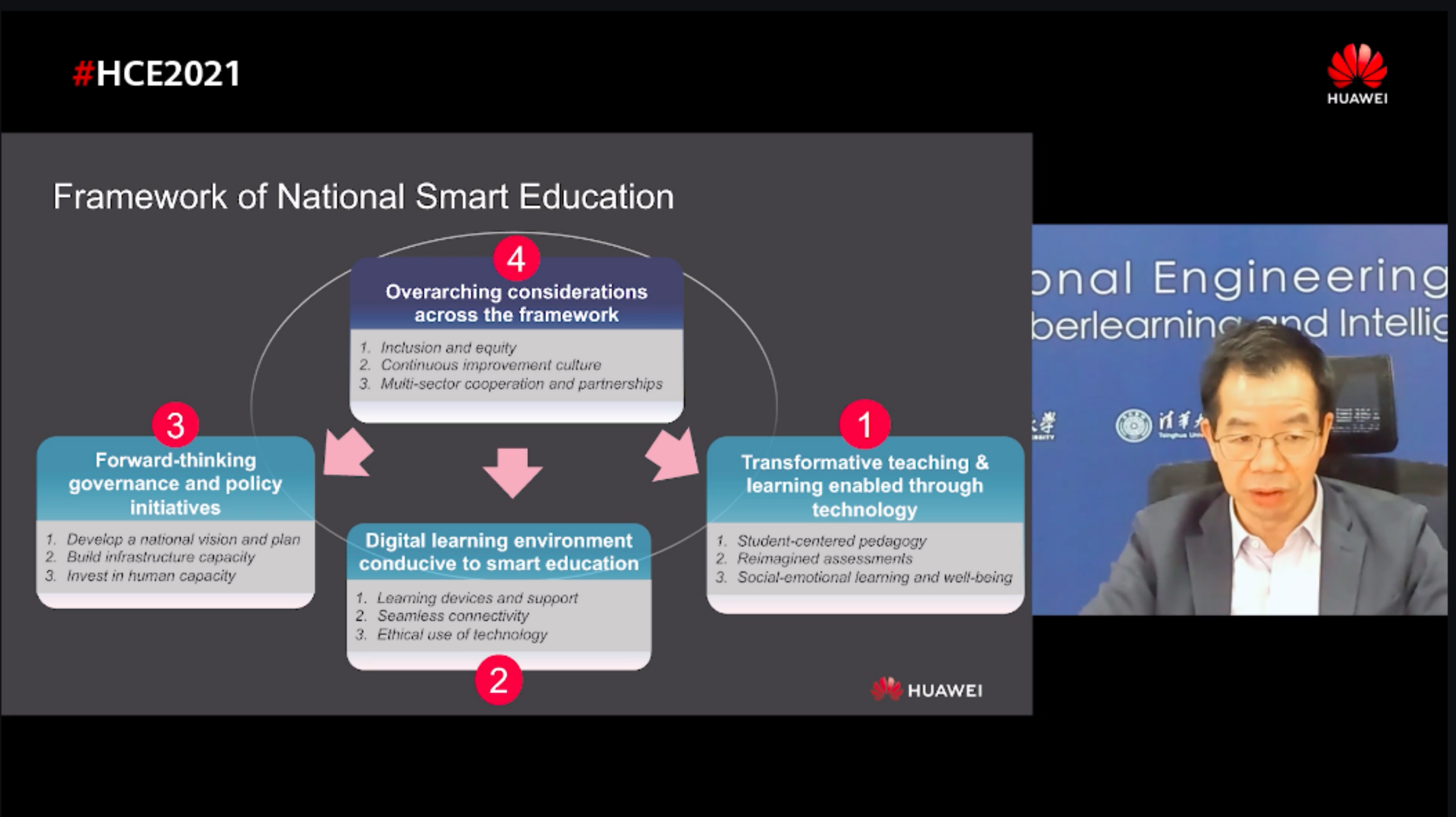
The project trying to design the indicators to access and monitor Smart Education at country level, in which smart education can be recognized as the advanced stage of ICT in education. There are three dimensions that need to be considered, which are the Digital learning environment, transforming teaching and learning, and forward-thinking governance at the municipal, region, and country-level.
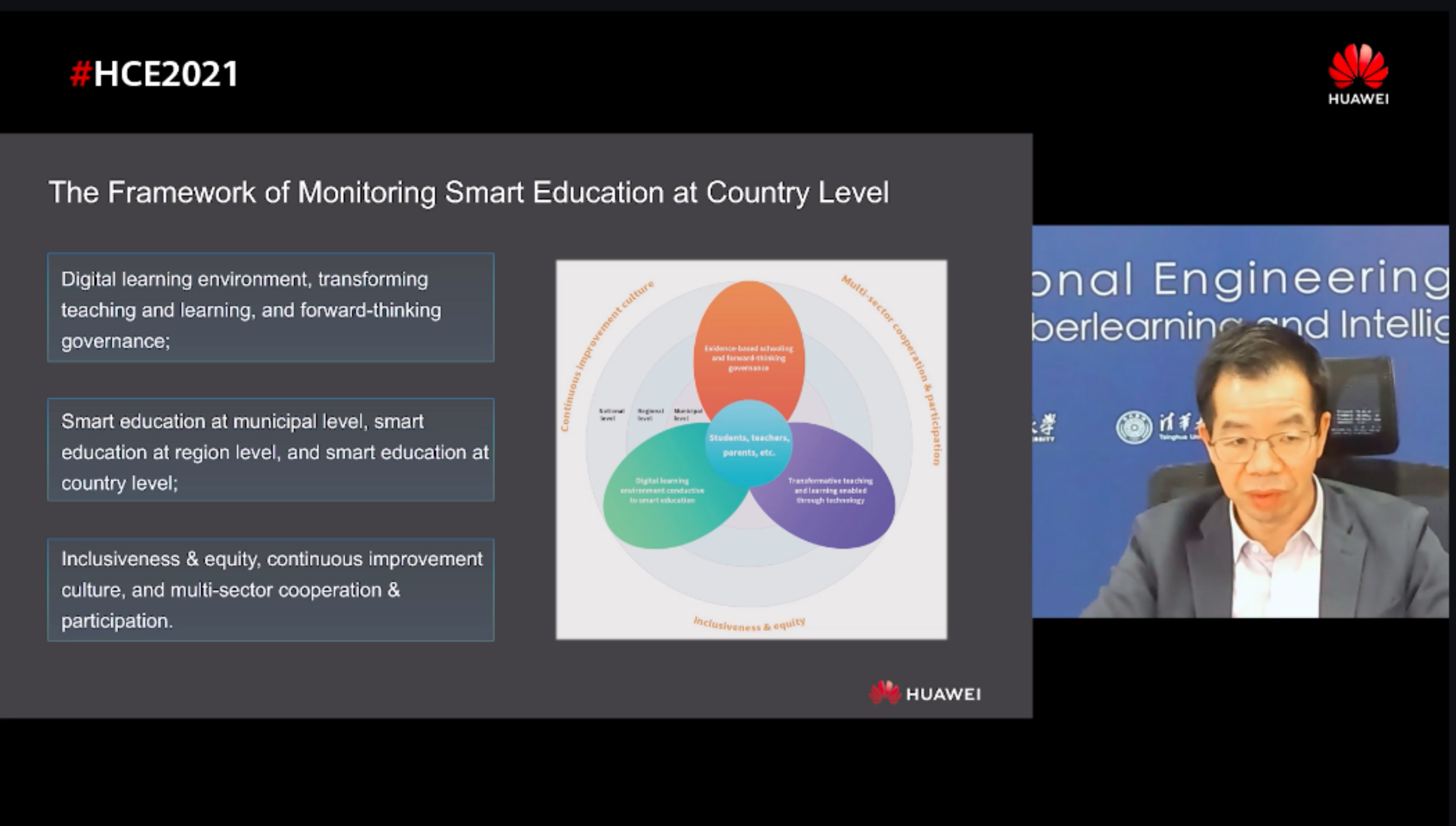
Secondly, Professor Huang shortly shared the national policy and practices in China, in terms of “Green” on New Initiatives just launched by the government of China, new Educational Infrastructure Construction. There are six key areas of the new educational infrastructure construction, including network infrastructure, digital campus, network security, ICT platforms, innovative applications, and digital resources. For example, Network Security focuses on creating sensibility of threads and intrusion of internet, and usage and security of information in terms of warning and monitoring. It also guaranteed “Green” network for kids to keep away from harmful information, eyesight damage, and Internet addiction.
Lastly, Professor Huang introduced three national educational public services systems led by the government in China, Education Management Information Center, the National Center for Educational Technology, and the Learning Center System of Open University of China, which are matched to meet the both needs, digitalization and sustainability. These three systems can strongly support and guarantee ICT (information and communication technology) in education successfully.
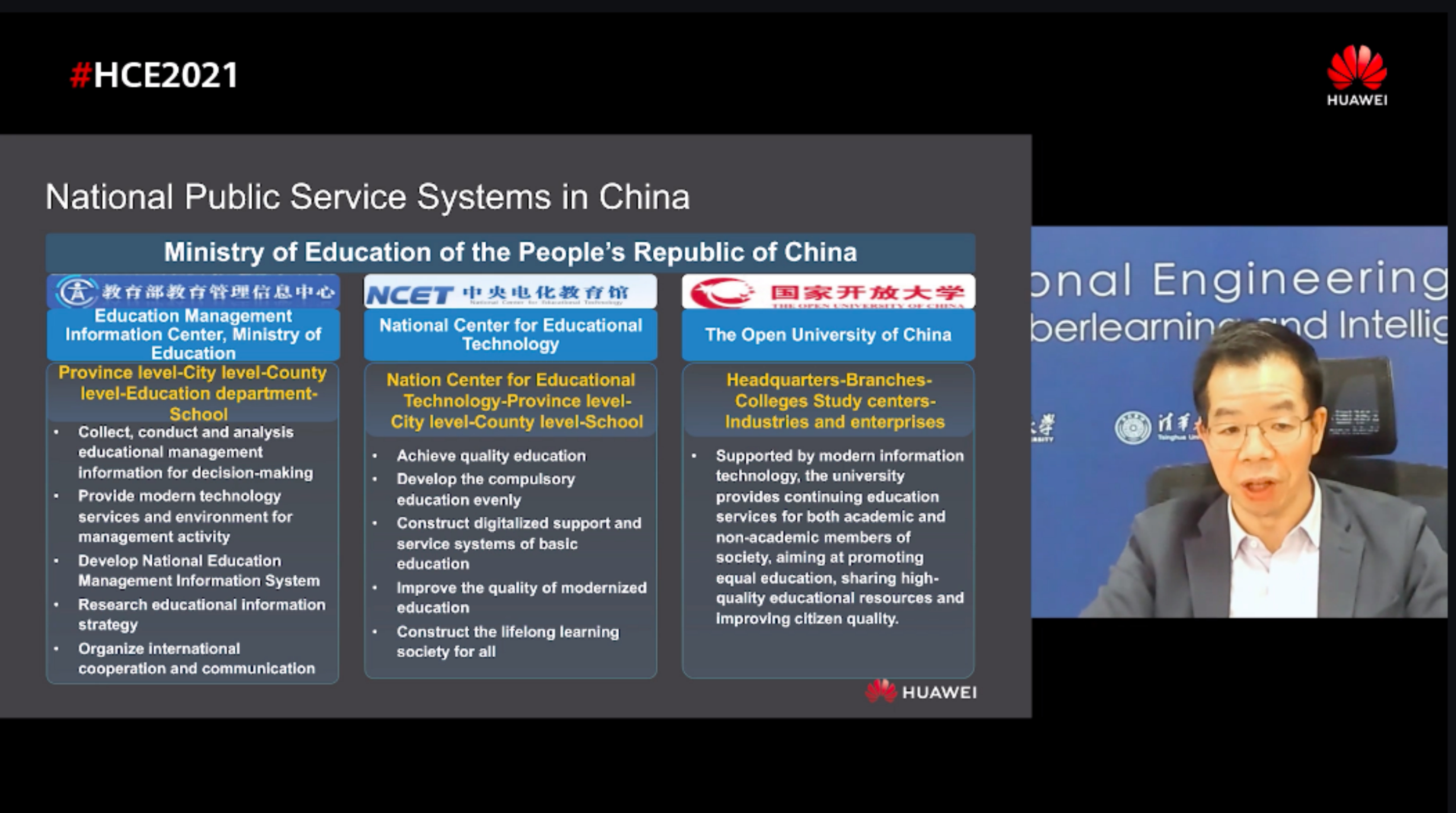
Professor Huang ends his speech with four identified typical public services for smart education: Supporting Learning, Interchanging Experience, Connecting Participants, and Sharing Resources. Those will also be integrated to the joint international research project on smart education mentioned in the beginning.
